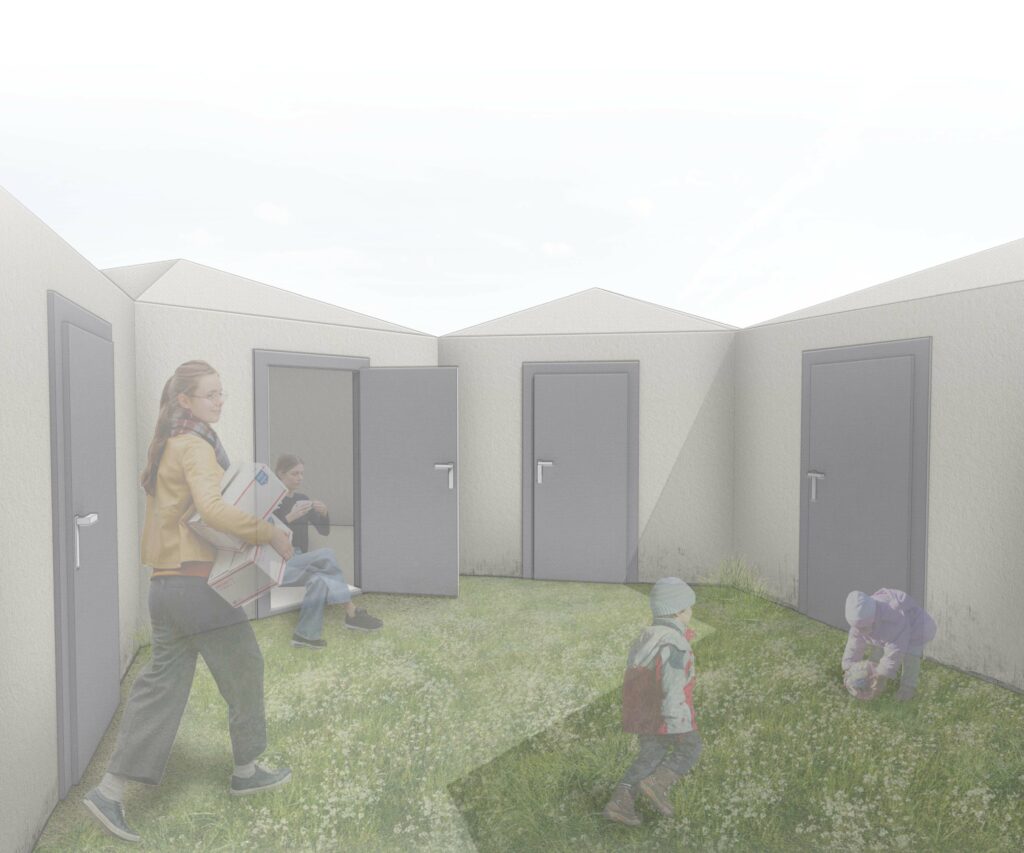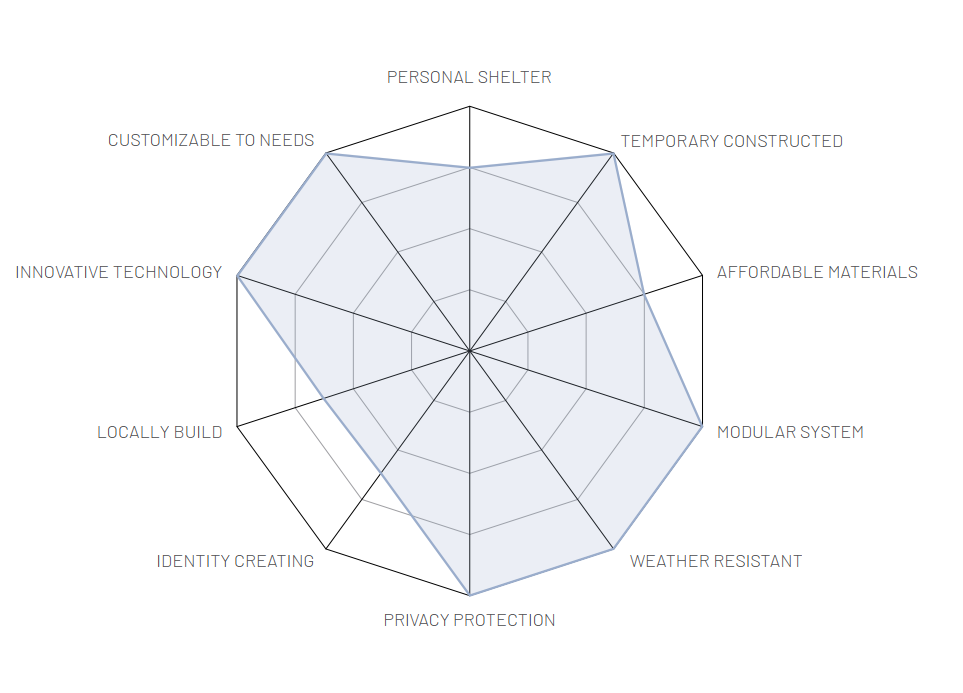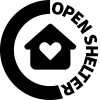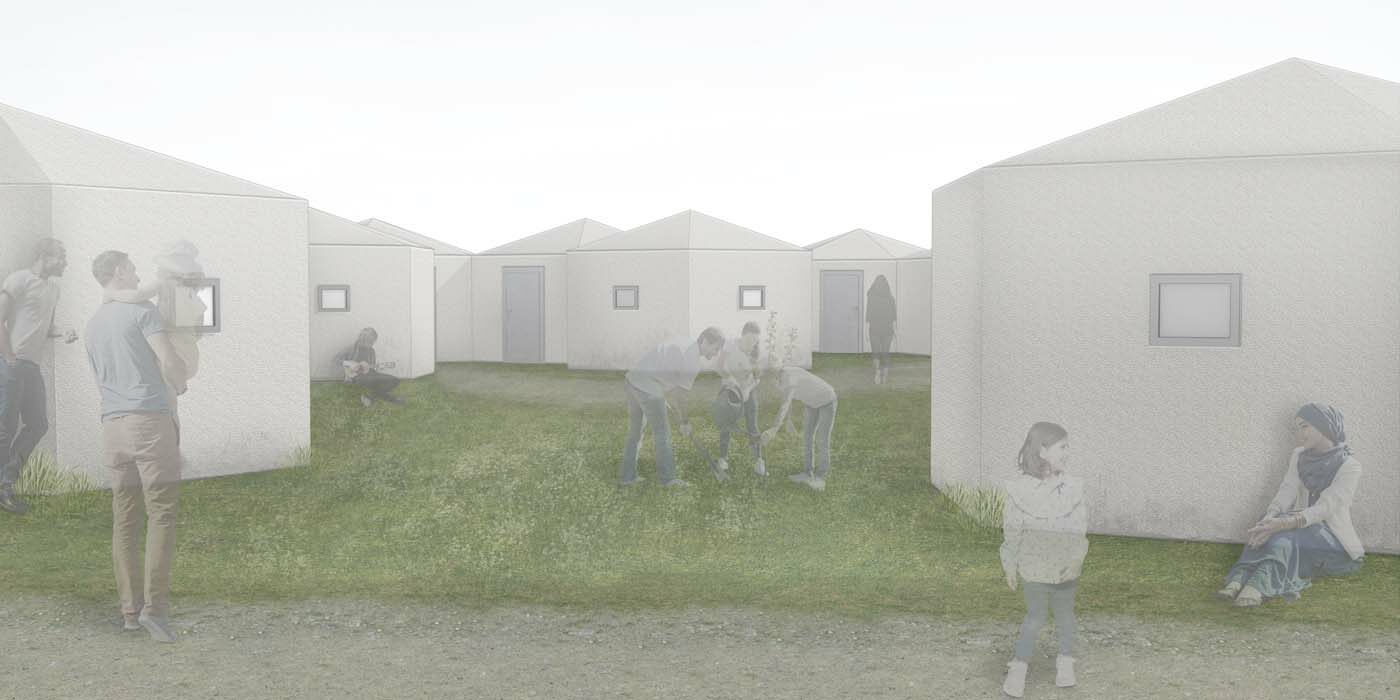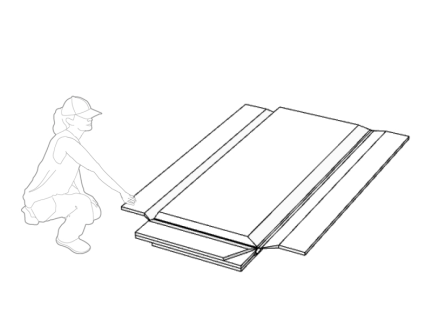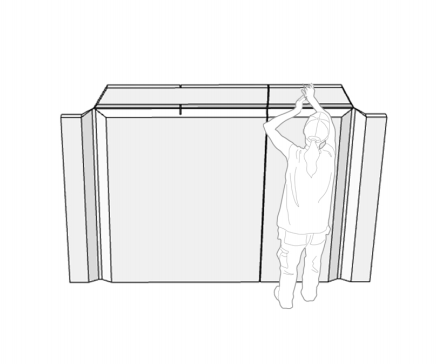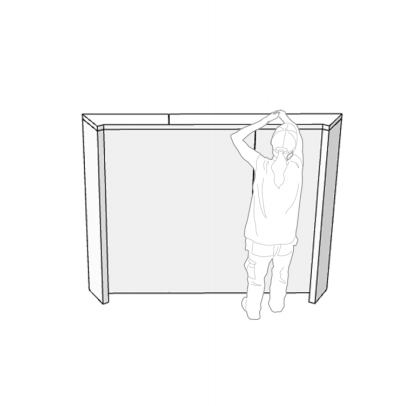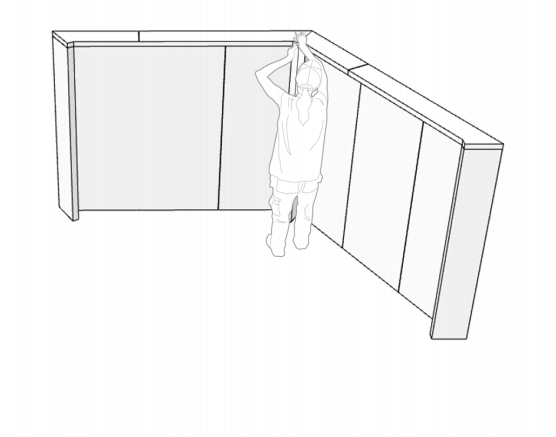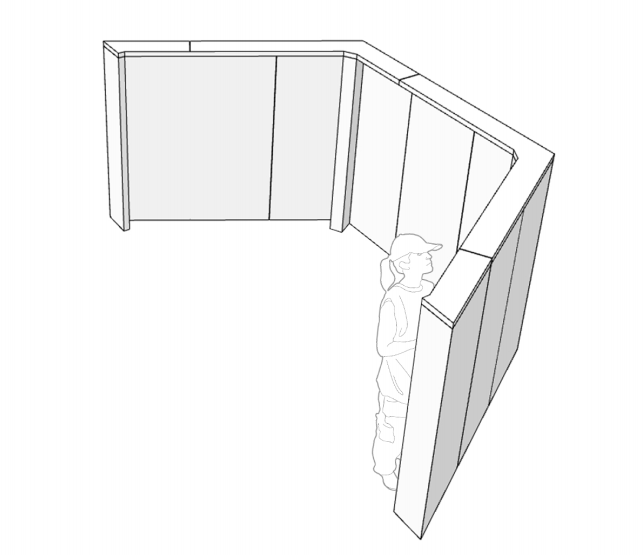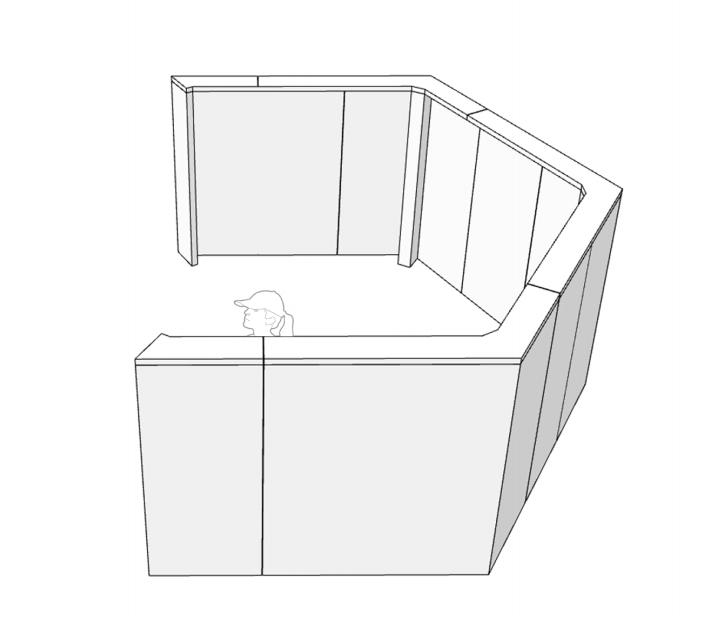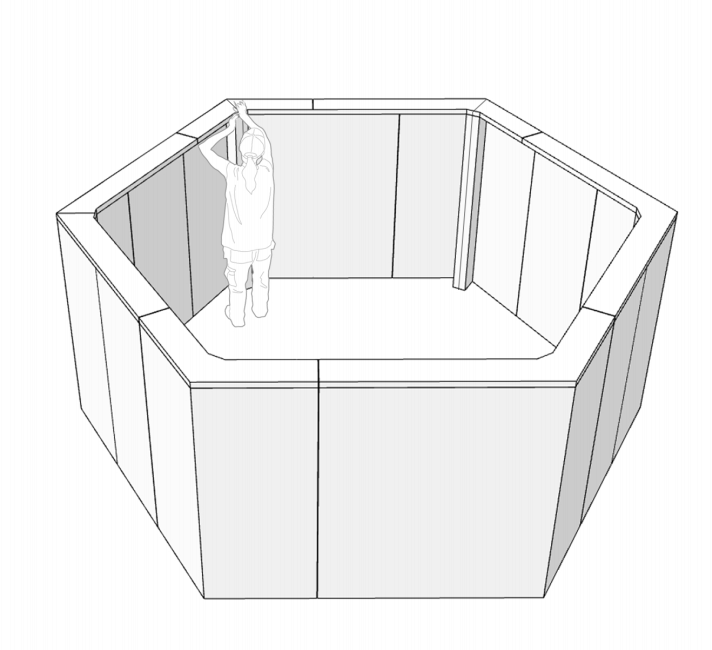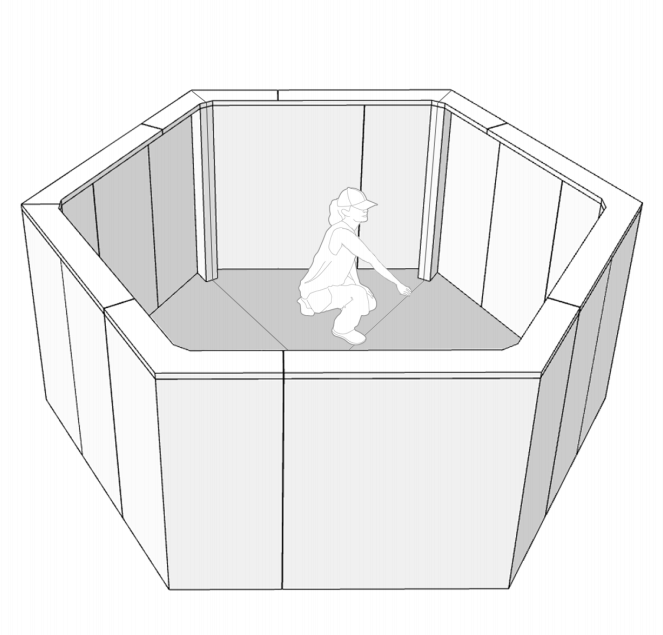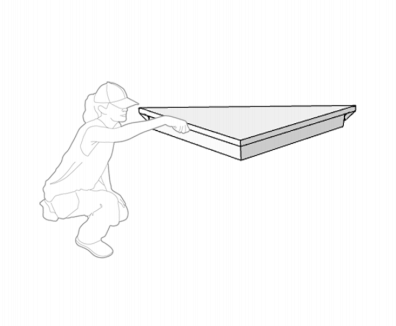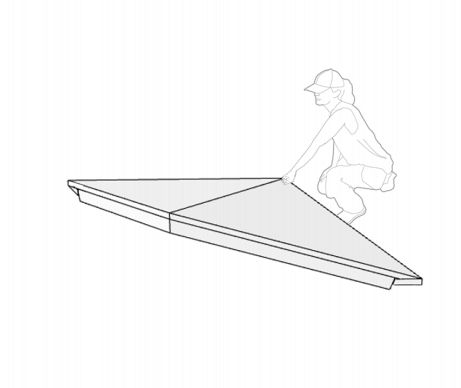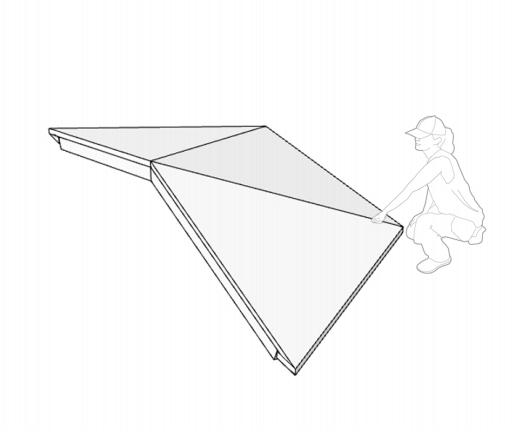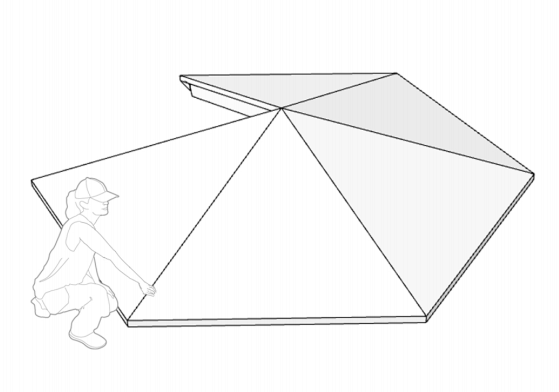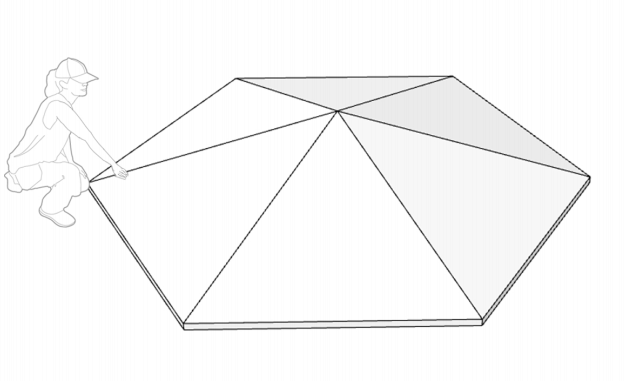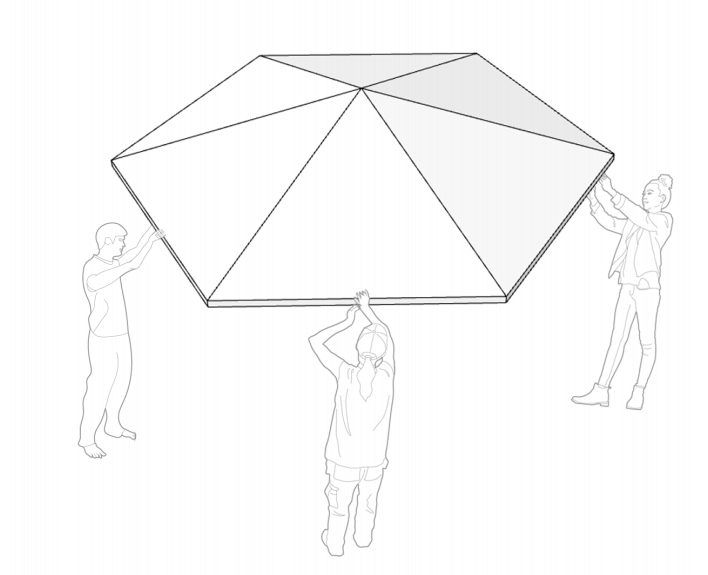Author & Designer: Elena Lenzen, Jenny Richter and Frederike Timmann
Date: November 2021
How can refugee shelters be made safer and more humane?
Through the use of modular structures, individual constellations can be arranged, creating communities and public spaces, as well as safe spaces for people in need. It is important to protect the occupants through form, arrangement and choice of materials. The shape of the hexagon is an inherently stable form that can be duplicated as often as needed in the grid to meet the needs of any refugee camp. The use of bent modules made of plastic waste encourages participation in the prozess of production and cooperation in the construction. The choice of material, combined with metal pins for securing, is a more stable and weatherproof alternative to conventional tent materials and, by using plastic as a raw material, is at the same time cost-effective and contributes to a cleaner environment.
„ROOF FOR REFUGEES creates a private, secure and diverse modular unit for a dignified stay in refugee camps through innovation in form and materials“
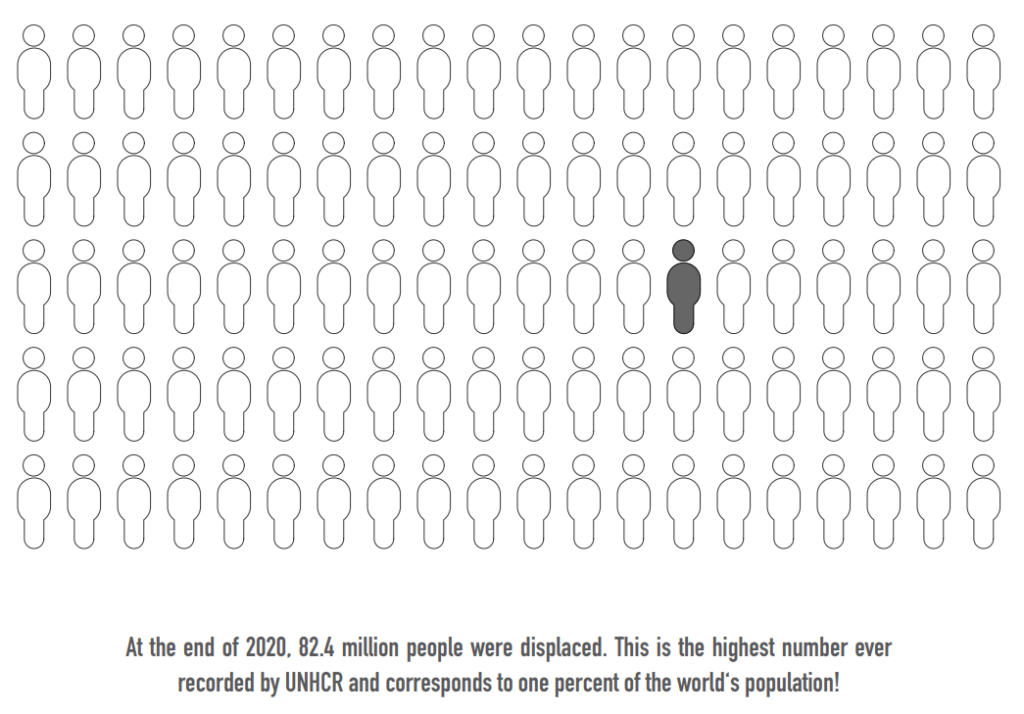

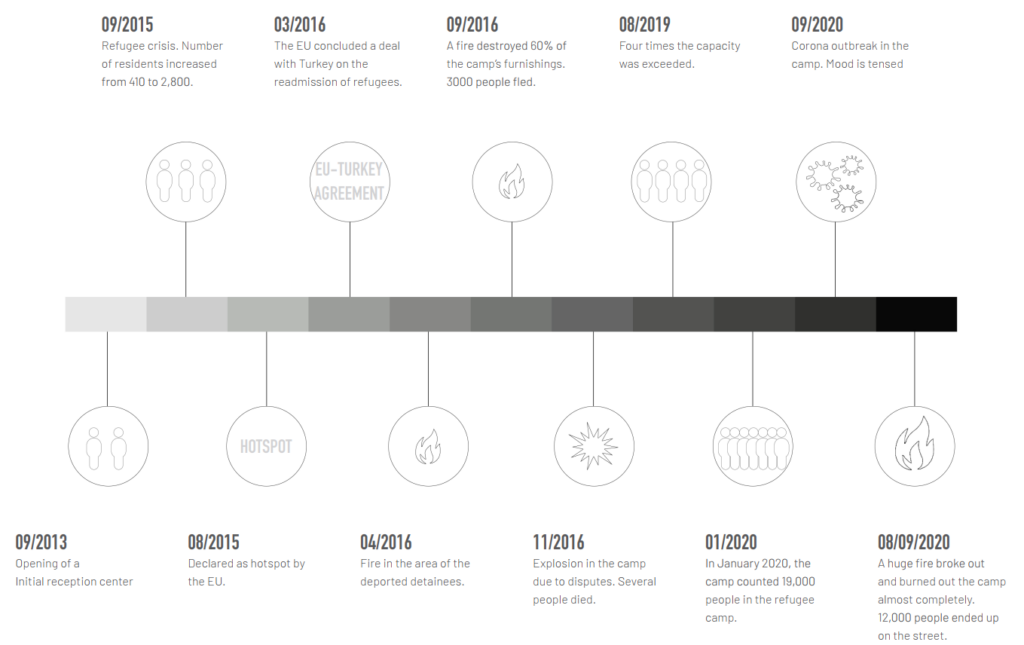

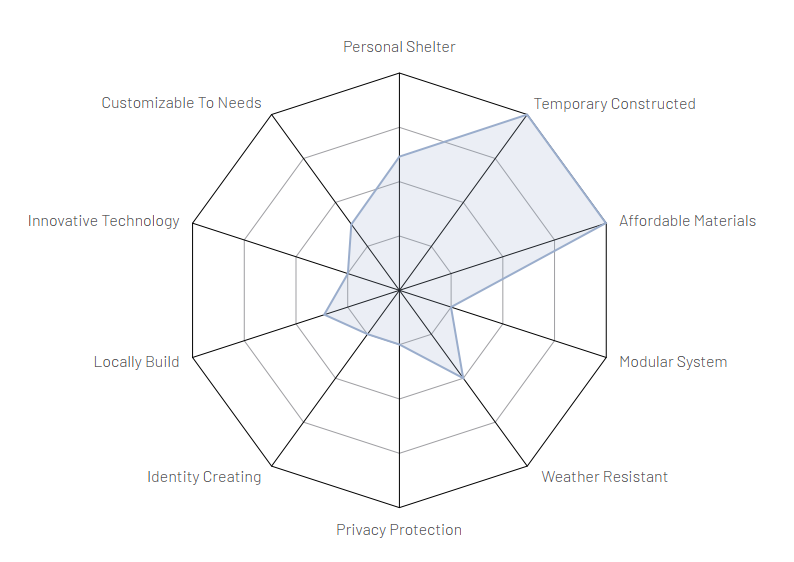
A tent is a cheap, fast and temporary solution – but not designed for a longer stay or a whole life. The disadvantages of a tent can often only be counteracted by building materials, which require more work, time and money and are therefore less temporary and more permanent. So we are looking for a compromise. We want to create a safe accommodation, which can be used in many ways and arranged in various ways. Through logical groupings and shapes we create built and unbuilt areas and thus also more security and privacy in camps.
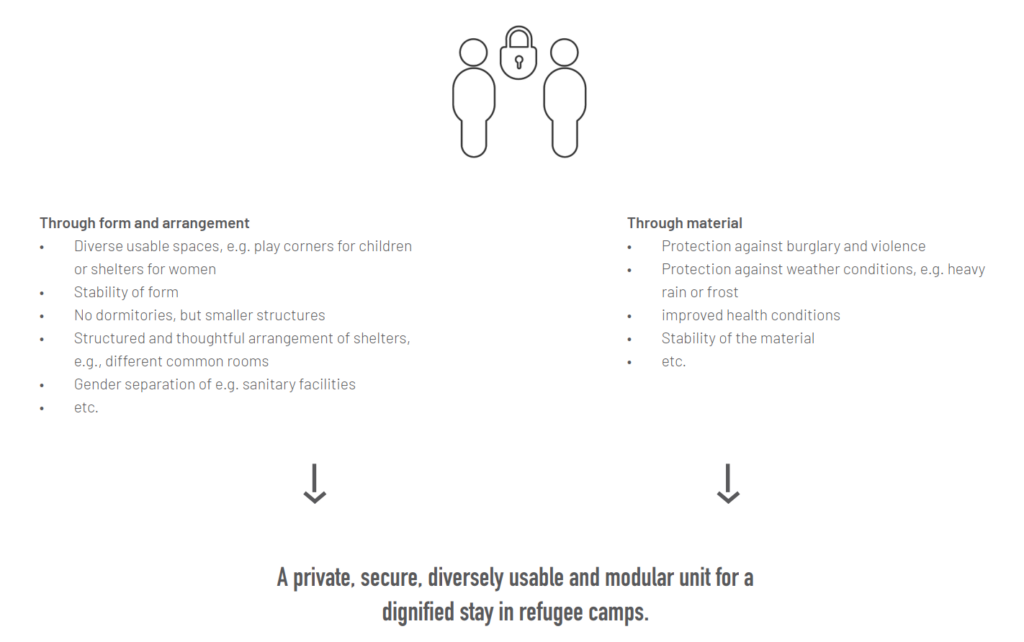
Hexagon in The Urban Context
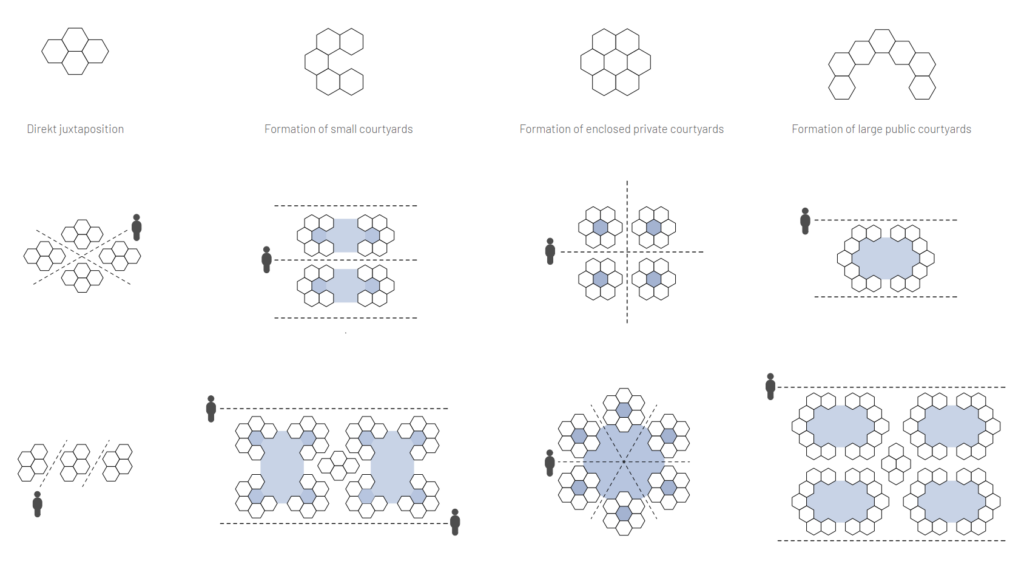
The Material
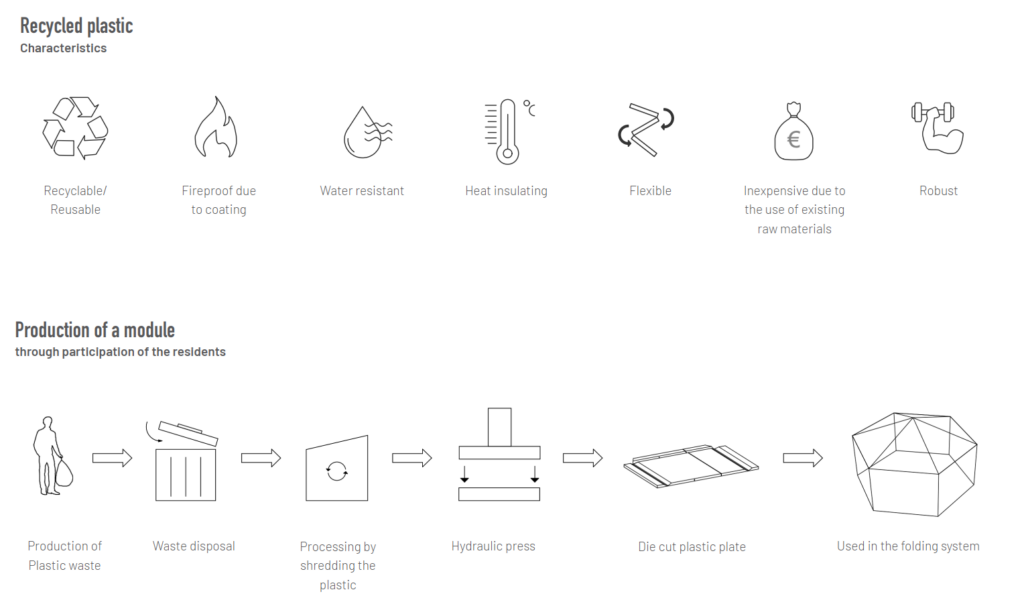
The Living Modul
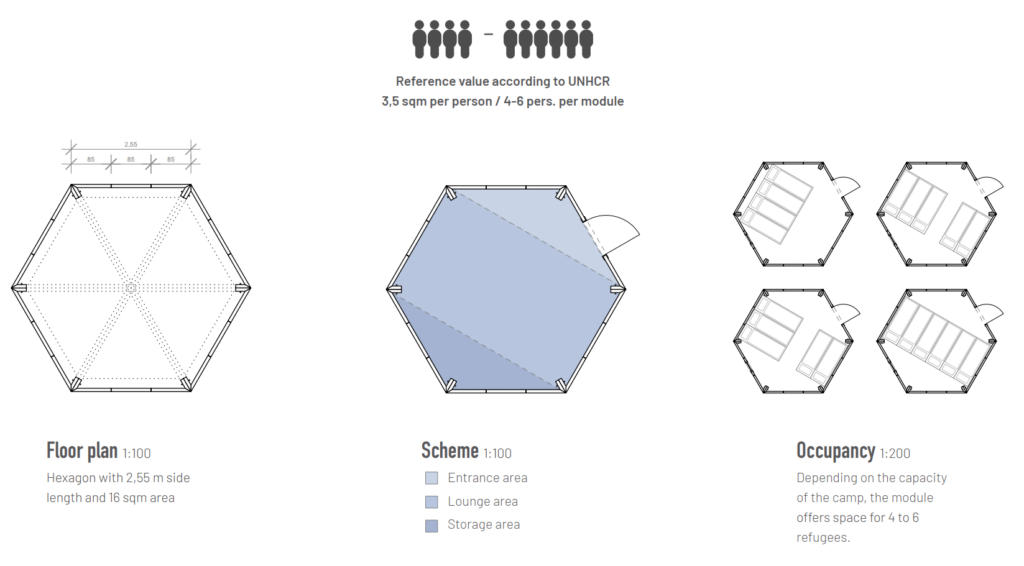

Component Catalog
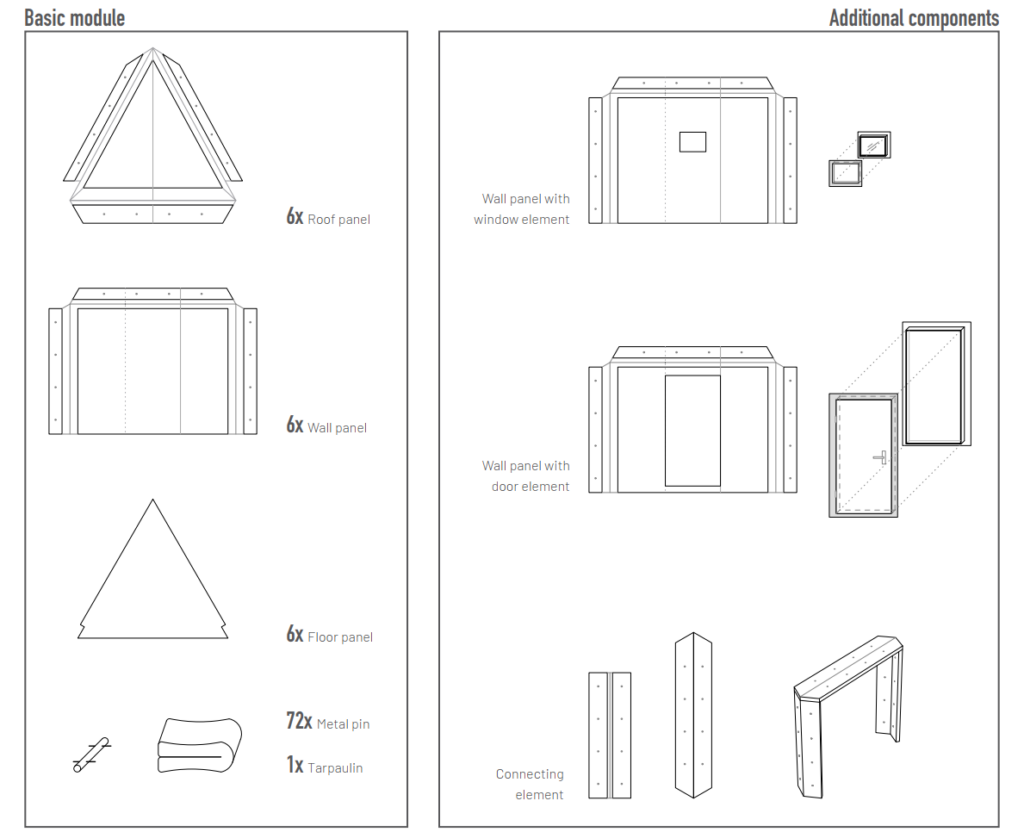
The Construction Process
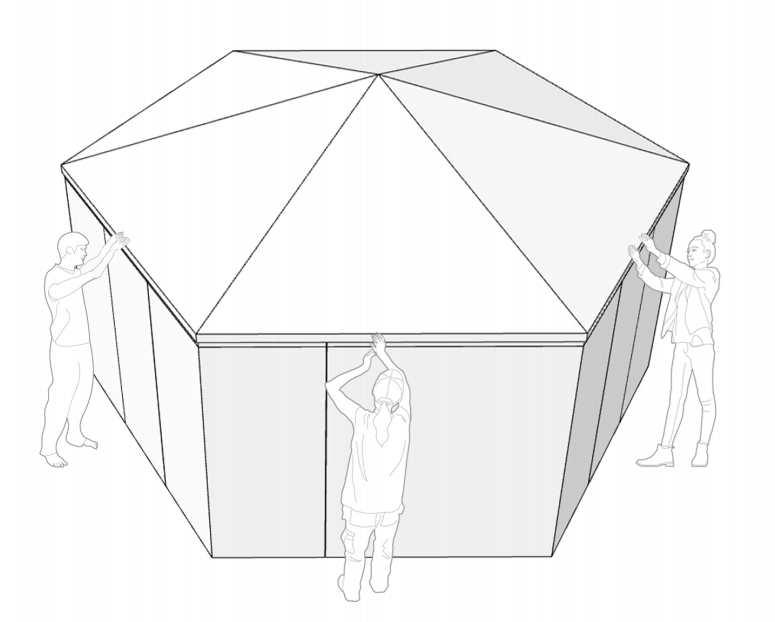
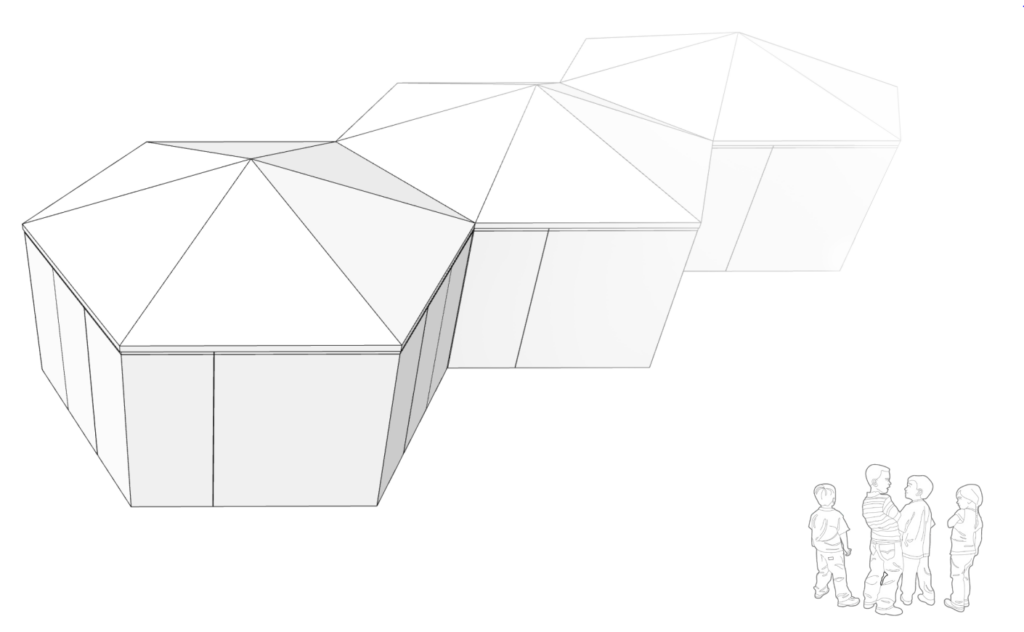
Extension
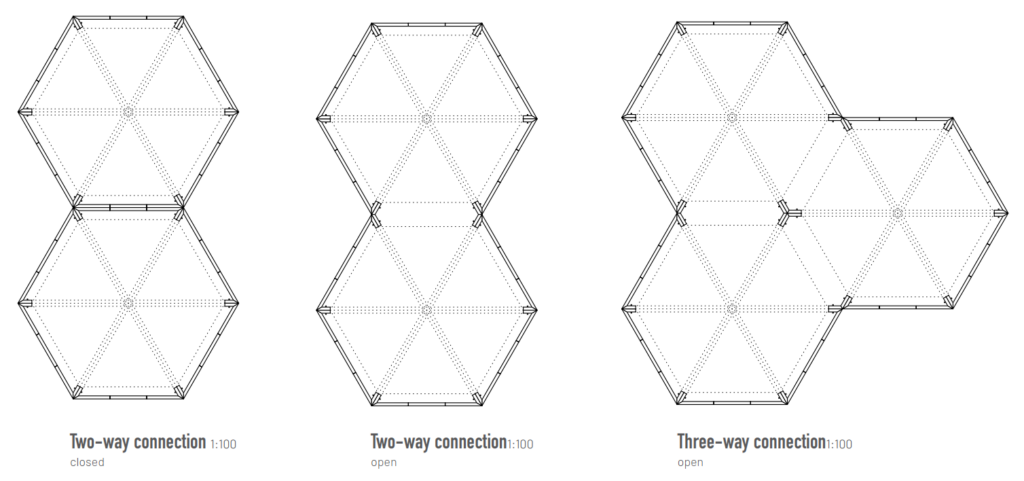
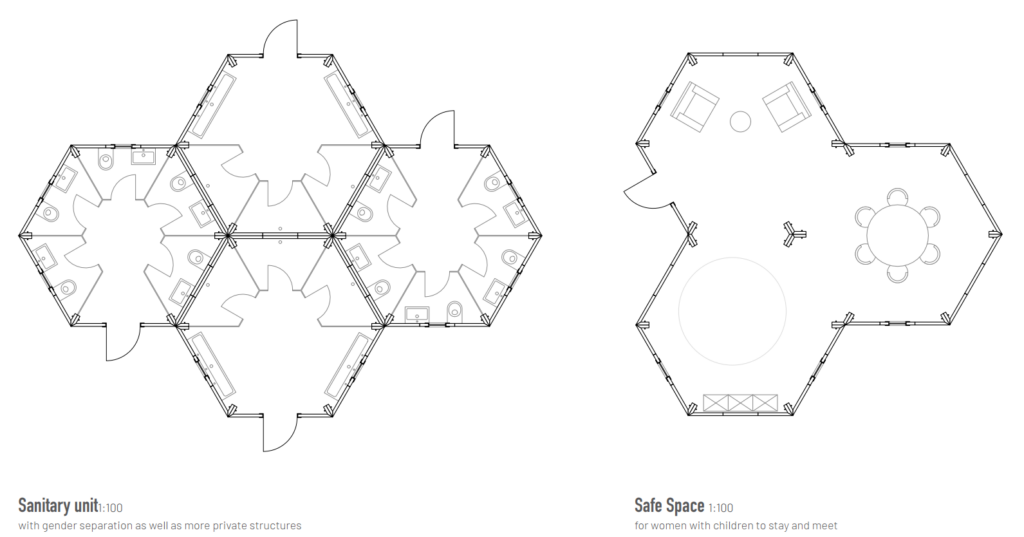
Figure Ground Plan
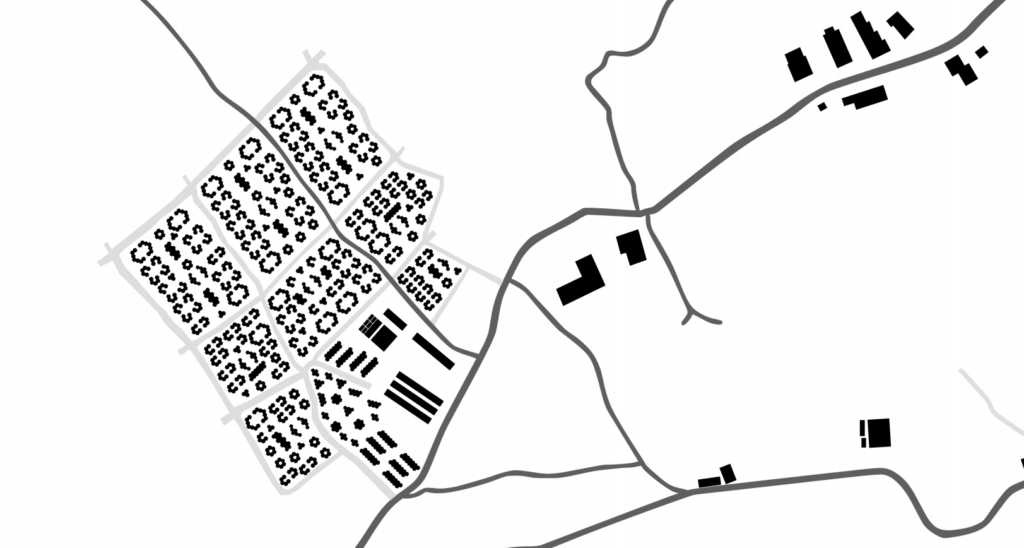
Site Plan Excerpt
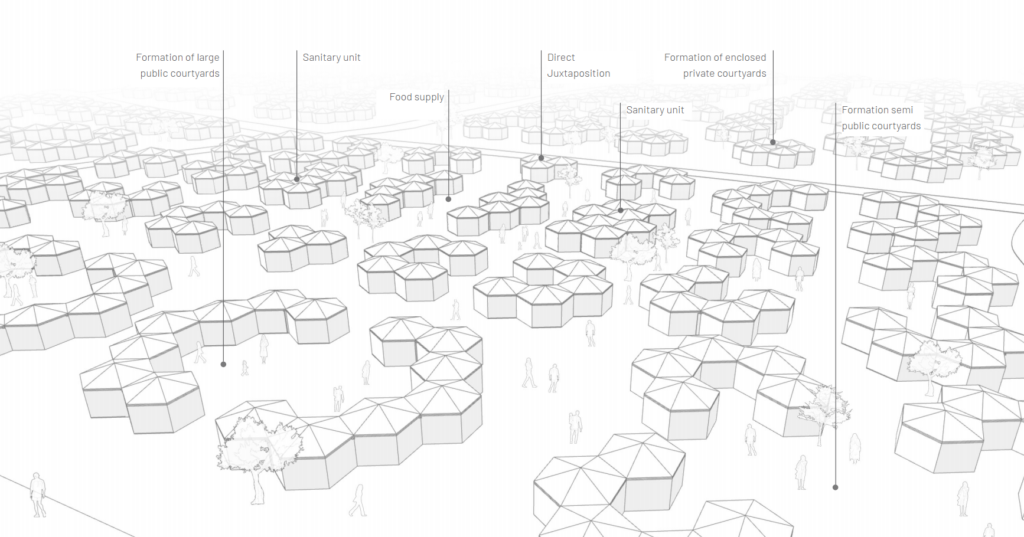
Roof for Refugees‘ creates through innovation in form and material, a private, secure and diverse modular unit for a dignified stay in refugee camps.
